Breastfeeding mothers in South Sudan find solutions to fight malnutrition amid hunger and the pandemic
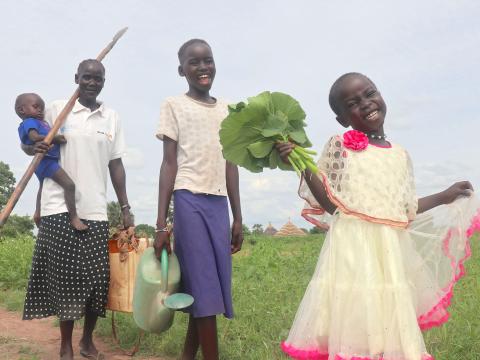
“My youngest child used to cry due to insufficient milk from my breast”, shares Awien Lual, 35-year-old mother of four in Kuajok, Warrap State.
Awien said she was doing well but things became difficult when the COVID-19 pandemic and the floods destroyed her crops in 2020.
“I was able to raise my children alone when my husband died in 2009. But the pandemic and destruction of my crops brought us on our knees, and malnutrition for my children.”
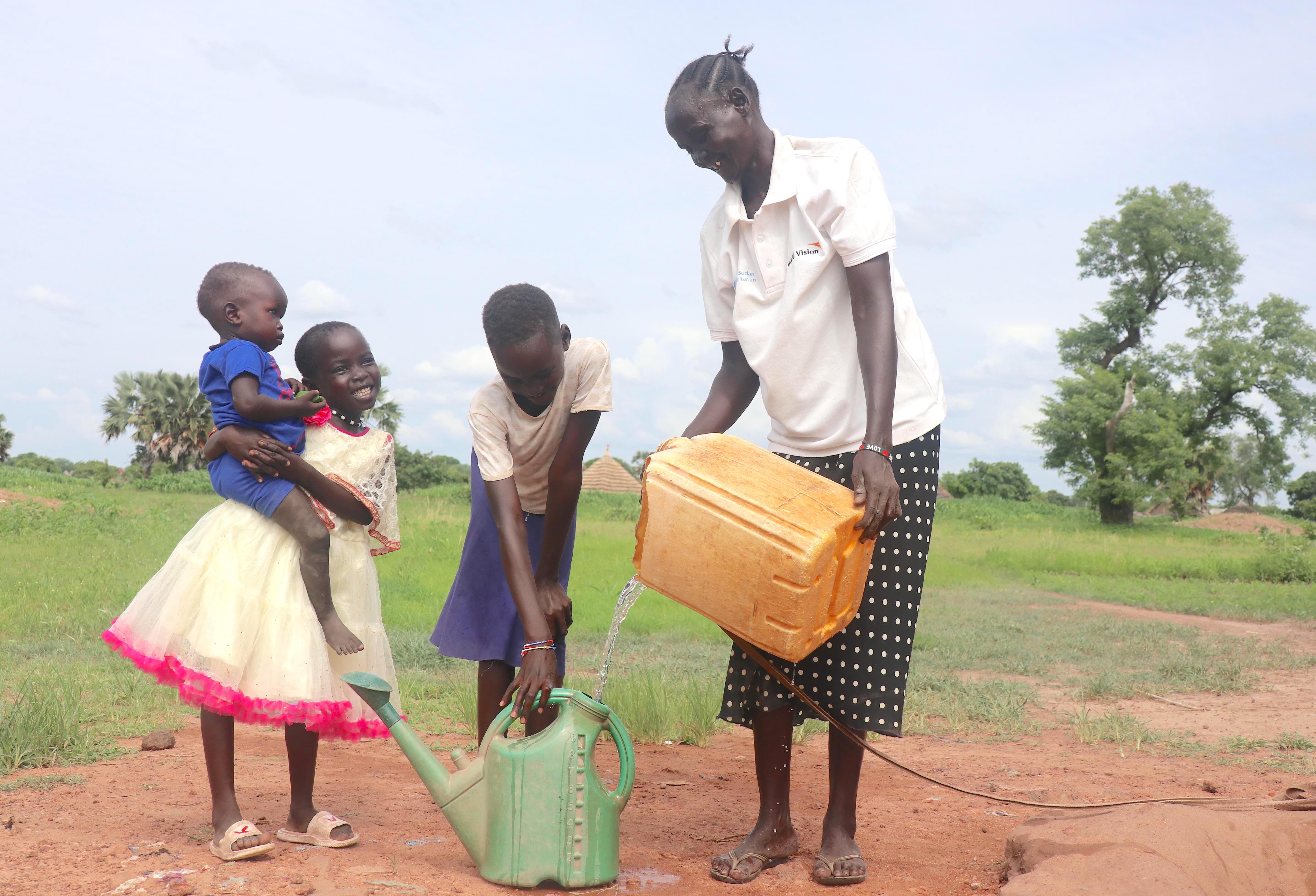
She says, “I almost ran mad seeing my family's only source of livelihood destroyed. I lost weight with stress when our food supply was gone. I was so worried for my children’s well-being.”
Awien tried to prioritize the little food she gets for her children. “Due to insufficient food, sometimes shared by our neighbors, I noticed an effect on my health and change in my skin color. I continued to breastfeed even with this condition.” Unknown to Awien, adults can also suffer from malnutrition. She rushed to the hospital thinking she was afflicted by a disease.
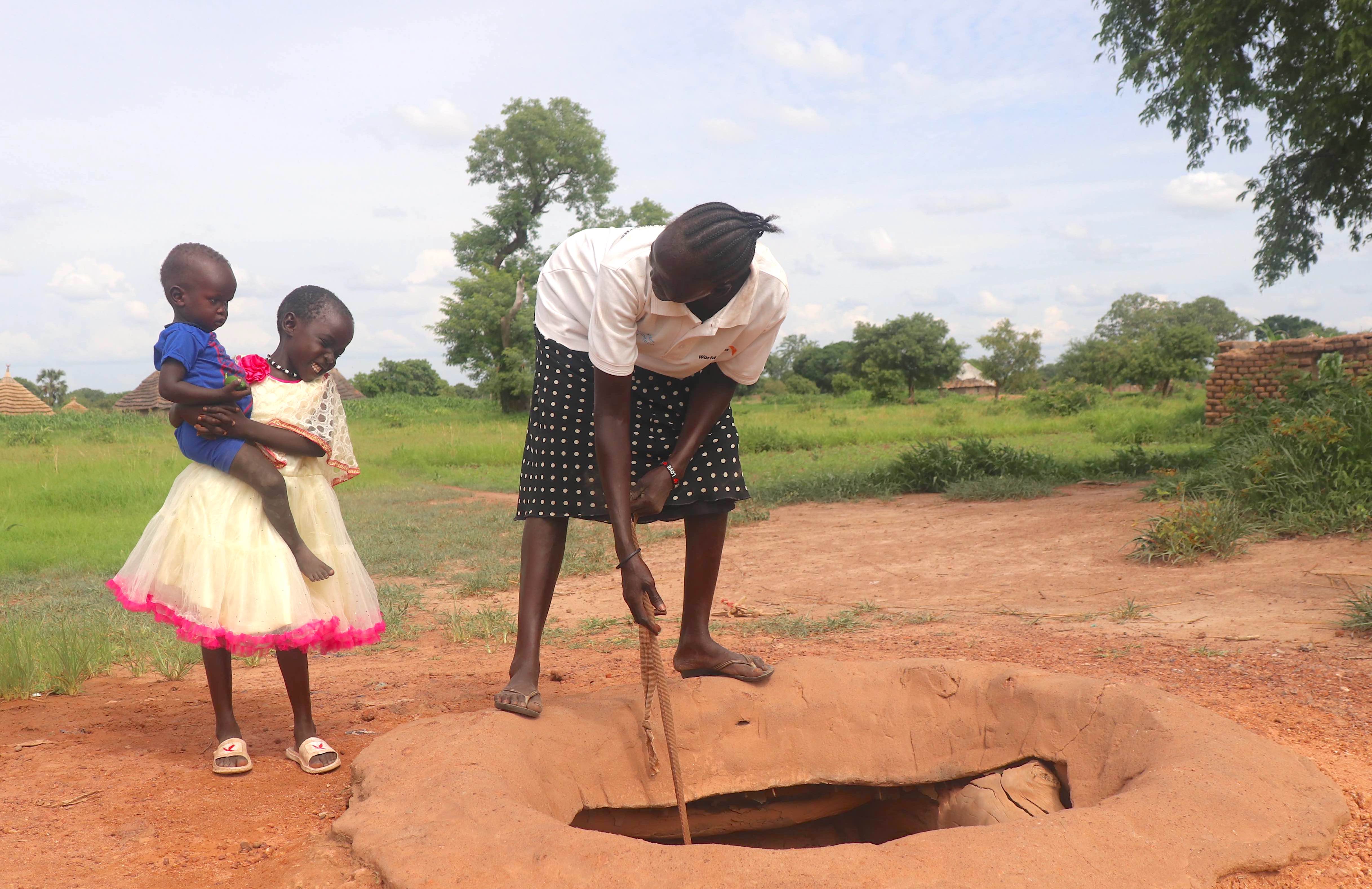
Rahab Kimani, World Vision’s Roving Nutrition Manager says, “Any form of malnutrition, acute or chronic, if not treated, have long term irreversible effects to children and mothers, even impact families, communities and the society at large.”
“As soon as the nurse checked my condition, she referred me at World Vision’s nutrition center where I got admitted in the nutrition program with severe acute malnutrition”, Awein shares.
Any form of malnutrition, acute or chronic, if not treated, have long term irreversible effects to children and mothers, even impact families, communities and the society at large.
She was supported and monitored by 15 women who are part of World Vision’s mother-to-mother group in her village. The group regularly promote awareness activities on the importance of optimal maternal-infant and young child nutrition practices.
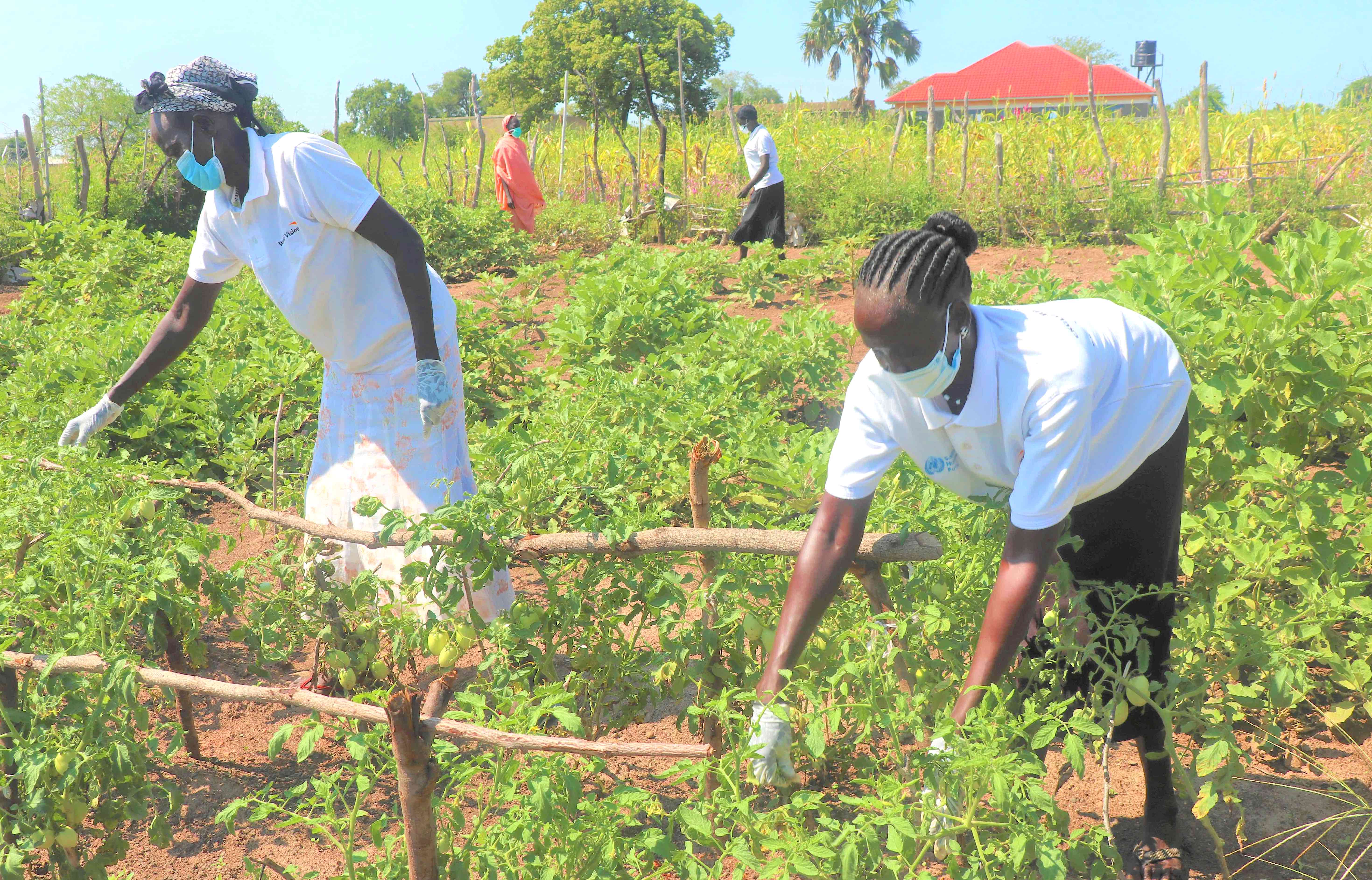
“The mothers encouraged and motivated me prompting my fast recovery. Upon my recovery, I joined the group to do my share of campaigning against malnutrition. I am now back on my feet, and my children are feed with nutritious diet. I now do household gardening from the seeds I received from World Vision and dug a shallow well for my garden”, Awein shares proudly.
Kimani further warns. “The adverse effects of malnutrition can also include low economic productivity, economic costs of treatment and related complications. Children born from malnourished mothers can potentially suffer from stunting, congenital diseases, poor cognitive development, among many others.
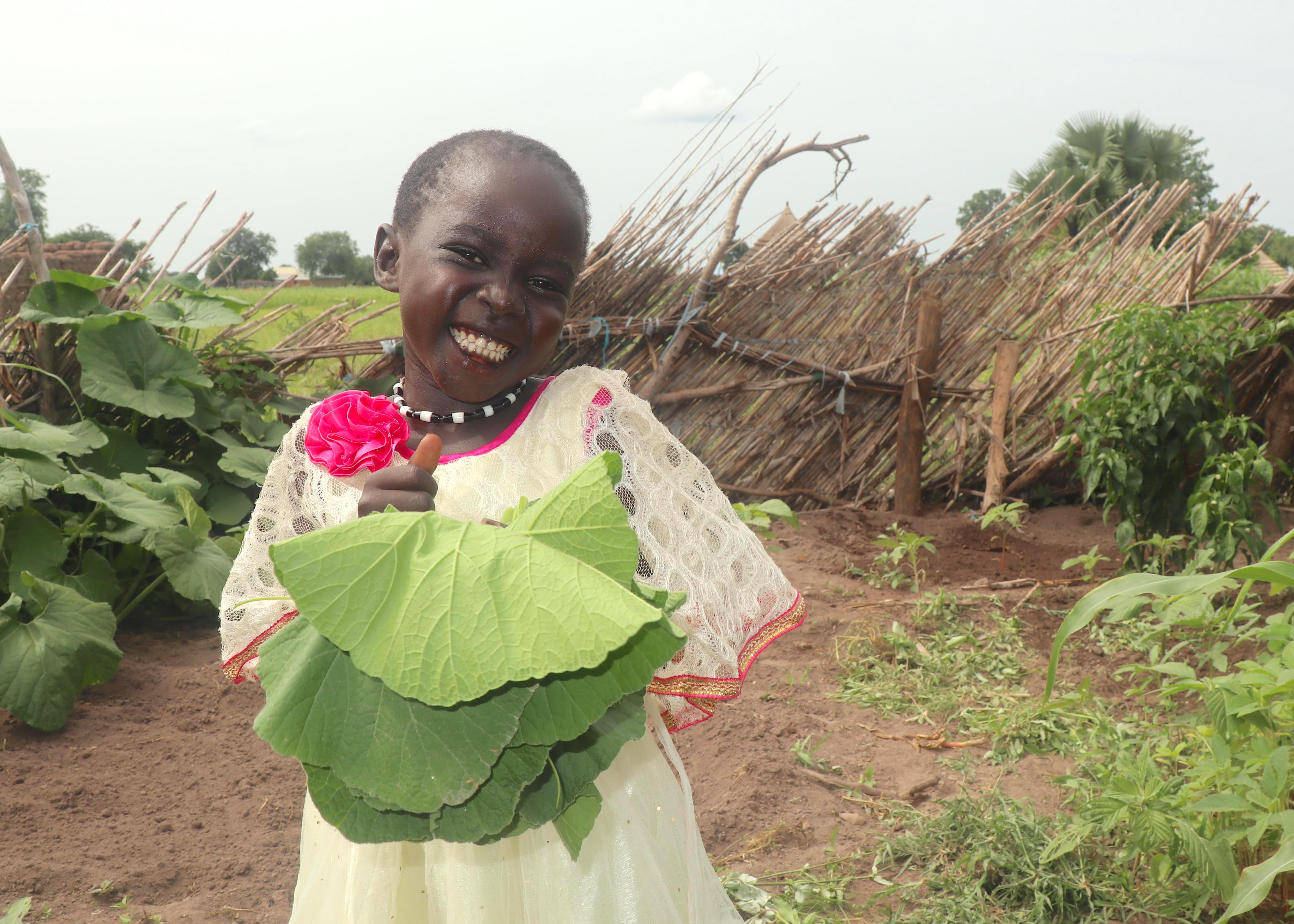
World Vision’s campaign against acute malnutrition is supported by the World Food Programme (WFP), UNICEF and local partners like the mother groups to save lives and promote a healthy future for South Sudan’s children.
In Warrap State, World Vision has assisted a total of 20,785 pregnant and lactating mothers identified and admitted for acute malnutrition, out of which, 14,791 have been cured successfully while the rest are still on treatment.
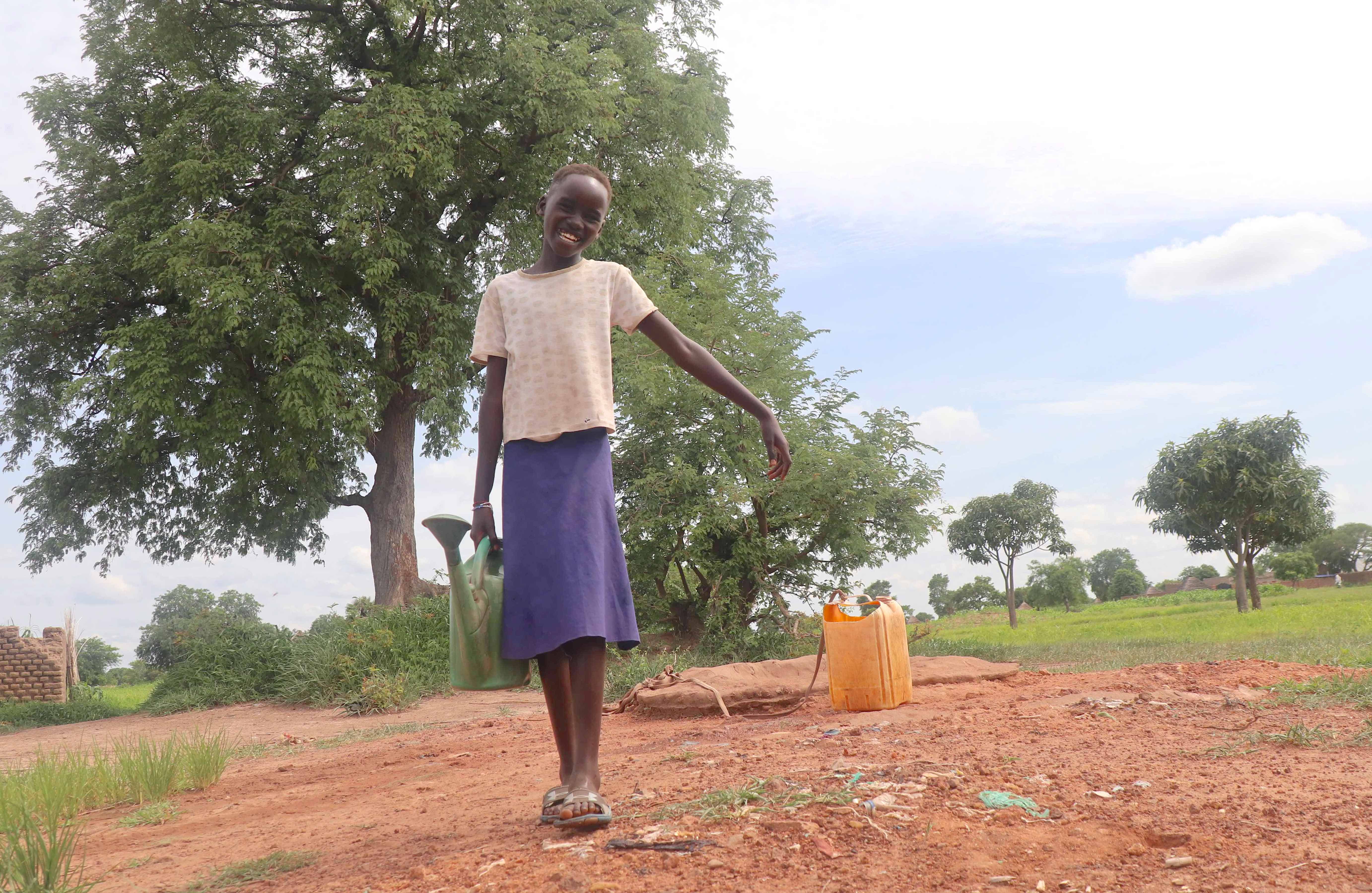
Story and photos by Scovia Faida Charles Duku, Communications Coordinator